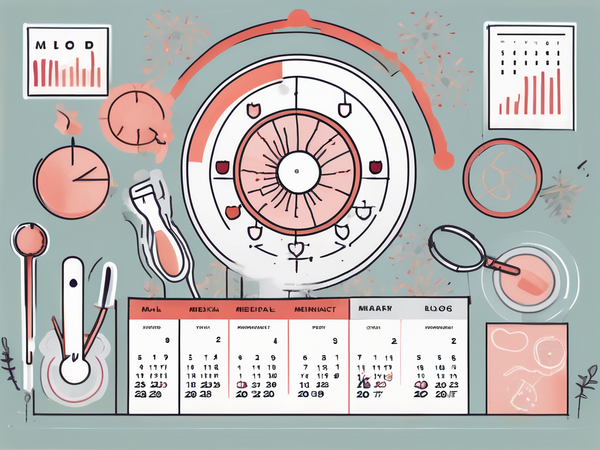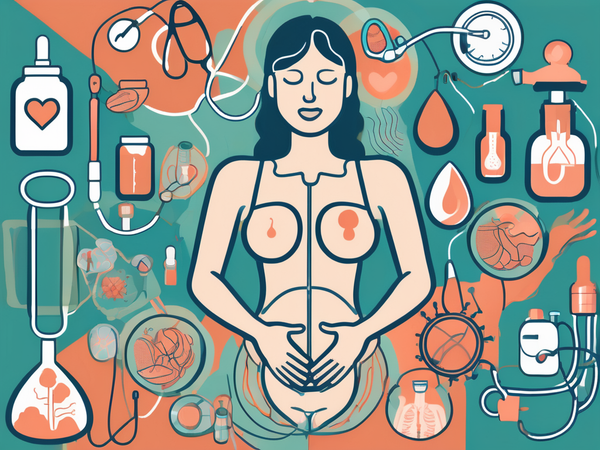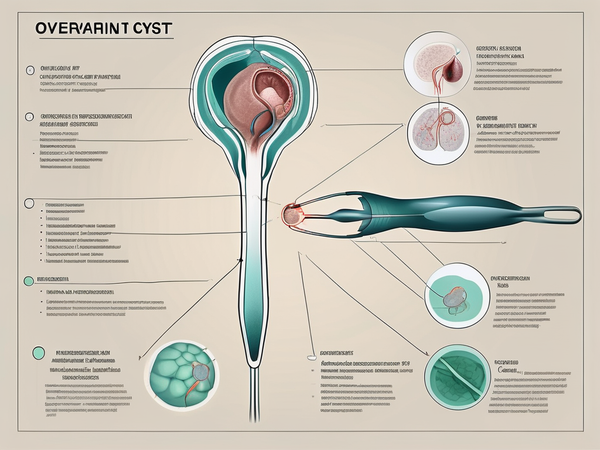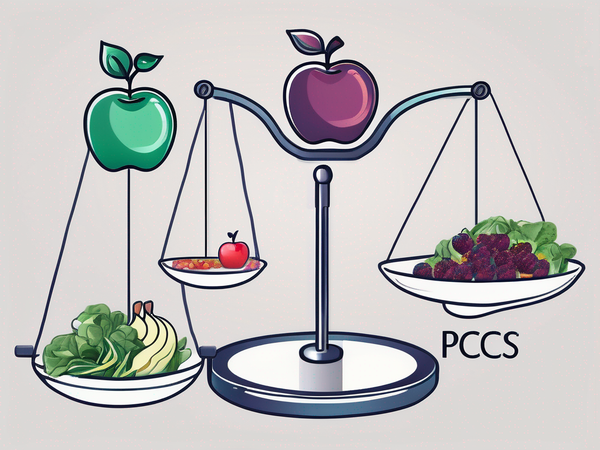How Does PCOS Impact Women's Mental Health?
PCOS, or Polycystic Ovary Syndrome, is a complex endocrine disorder that affects many women worldwide. While it is primarily known for its impact on reproductive health, it is essential to acknowledge the significant influence it has on women's mental well-being as well. Understanding the connection between PCOS and mental health is crucial in providing comprehensive care for women with this condition.
Understanding PCOS and Its Impact on Women's Health
PCOS is a hormonal disorder characterized by imbalances in reproductive hormones, including estrogen and progesterone. This results in the development of small cysts on the ovaries, irregular menstrual cycles, and other distinctive symptoms.
Women with PCOS may also experience weight gain, acne, excessive hair growth (hirsutism), and thinning hair on the scalp. These symptoms can have a significant impact on a woman's self-esteem and quality of life.
What is PCOS?
PCOS is a chronic condition that affects the ovaries and reproductive system. Women with PCOS often experience hormonal imbalances, which can lead to a range of physical and emotional symptoms.
Furthermore, PCOS is associated with an increased risk of developing other health conditions, such as type 2 diabetes, high blood pressure, and heart disease. It is important for women with PCOS to work closely with their healthcare providers to manage their symptoms and reduce their risk of complications.
The Prevalence of PCOS in Women
PCOS is one of the most common endocrine disorders in women. It affects approximately 5-10% of women of childbearing age and is a leading cause of infertility.
Despite its prevalence, PCOS is often underdiagnosed or misdiagnosed, leading to delays in treatment and management. Increased awareness and education about PCOS are crucial in ensuring that women receive timely and appropriate care for this complex condition.
The Connection Between PCOS and Mental Health
Research has shown a strong association between PCOS and mental health disorders. Hormonal imbalances, coupled with the distressing symptoms of PCOS, can contribute to various mental health conditions.
Polycystic Ovary Syndrome (PCOS) is a complex endocrine disorder that affects millions of women worldwide. Beyond its well-known physical symptoms, such as irregular periods and ovarian cysts, PCOS can also have profound effects on mental well-being. Studies have indicated that women with PCOS are at a higher risk of developing anxiety, depression, and mood disorders compared to those without the condition.
The Role of Hormones in PCOS and Mental Health
Hormones play a significant role in both PCOS and mental health. Imbalances in reproductive hormones and insulin levels can affect neurotransmitters in the brain, leading to mood fluctuations, irritability, and emotional instability.
One key hormone involved in PCOS is insulin, which is crucial for regulating blood sugar levels. Insulin resistance, commonly seen in women with PCOS, not only impacts metabolism but also influences the production of hormones like testosterone. Elevated testosterone levels in women can contribute to symptoms like hirsutism (excessive hair growth) and acne, further exacerbating the psychological burden of the condition.
The Psychological Impact of PCOS Symptoms
PCOS symptoms such as irregular periods, excessive hair growth, and acne can negatively impact a woman's self-esteem and body image. These physical manifestations of PCOS often lead to feelings of embarrassment, shame, and reduced confidence.
Moreover, the chronic nature of PCOS and its associated symptoms can create a sense of unpredictability and loss of control in affected individuals. The constant monitoring of symptoms, potential fertility concerns, and the challenges of managing weight can all contribute to heightened stress levels and emotional distress. Seeking support from healthcare providers, mental health professionals, and support groups can be crucial in addressing the holistic needs of women with PCOS.
Exploring Specific Mental Health Conditions Linked to PCOS
PCOS and Mood Swings
Mood swings are a common symptom reported by women with PCOS. Fluctuations in hormones, particularly estrogen and progesterone, can result in sudden emotional shifts, ranging from happiness to sadness and unexplained irritability.
It's important to note that managing these mood swings can be challenging, as they can impact various aspects of a woman's life, including relationships, work performance, and overall well-being. Seeking support from healthcare providers, therapists, and support groups can be beneficial in developing coping strategies and improving emotional regulation.
PCOS and Stress
Living with PCOS can be incredibly stressful, as women often face challenges related to fertility, weight management, and managing their symptoms. Chronic stress can further exacerbate the hormonal imbalances associated with PCOS, leading to heightened psychological distress.
In addition to the physical symptoms of PCOS, such as irregular periods and acne, the emotional toll of the condition should not be overlooked. Finding ways to reduce stress through mindfulness practices, exercise, and relaxation techniques can help in managing both the physical and emotional aspects of PCOS.
PCOS and Emotional Outbursts
Women with PCOS may experience more frequent emotional outbursts due to the hormonal fluctuations that occur. Increased levels of androgens, such as testosterone, can contribute to intense emotions and feelings of anger or frustration.
It's essential for individuals with PCOS to communicate openly with their healthcare providers about these emotional challenges. Therapy, support groups, and lifestyle changes, such as regular exercise and a balanced diet, can play a significant role in managing emotional outbursts and improving overall mental well-being.
PCOS and Depression
Depression is a prevalent mental health condition that often coexists with PCOS. The hormonal disruptions and challenges of living with a chronic condition can contribute to feelings of sadness, hopelessness, and a decreased quality of life.
Addressing depression in the context of PCOS requires a comprehensive approach that may include medication, therapy, lifestyle modifications, and social support. It's crucial for individuals experiencing symptoms of depression to seek help and work with healthcare professionals to develop a personalized treatment plan.
PCOS and Anxiety
Anxiety disorders, characterized by excessive worrying and fear, are also commonly associated with PCOS. The uncertainty surrounding fertility, body image concerns, and the impact of PCOS on daily life can contribute to heightened anxiety levels.
Practicing self-care activities, such as meditation, journaling, and engaging in hobbies, can be beneficial in managing anxiety symptoms. Additionally, cognitive-behavioral therapy and medication may be recommended for individuals with PCOS who are experiencing significant anxiety that interferes with their daily functioning.
Coping Strategies for Managing PCOS-Related Stress
While managing the mental health impact of PCOS can be challenging, several strategies can help women navigate the stress and emotional challenges associated with the condition, such as anxiety and depression.
Polycystic Ovary Syndrome (PCOS) is a common hormonal disorder that affects women of reproductive age. Apart from its physical symptoms, such as irregular periods and cysts on the ovaries, PCOS can also take a toll on mental well-being. The emotional stress of dealing with infertility, weight gain, and hormonal imbalances can be overwhelming for many women with PCOS.
Lifestyle Changes for Stress Management
Incorporating stress management techniques into daily life can have a positive impact on mental well-being. Regular exercise, mindfulness practices, and maintaining a balanced diet can help regulate hormones and alleviate stress levels.
Exercise not only helps in managing weight, a common concern for women with PCOS, but it also releases endorphins that can improve mood and reduce stress. Mindfulness practices, such as meditation and deep breathing exercises, can help women with PCOS stay grounded and manage anxiety levels. A balanced diet rich in whole foods, lean proteins, and healthy fats can support hormone regulation and overall well-being.
Therapeutic Approaches to Managing Stress
Seeking support from mental health professionals, such as therapists or counselors, can be instrumental in developing coping mechanisms and addressing the emotional impact of PCOS. Cognitive-behavioral therapy and other evidence-based approaches are effective in managing stress and improving overall mental health.
Therapists can work with women with PCOS to challenge negative thought patterns, build resilience, and develop healthy coping strategies. Support groups specifically for women with PCOS can also provide a sense of community and understanding, reducing feelings of isolation often experienced by those with the condition.
Conclusion
The impact of PCOS on women's mental health should not be underestimated. Recognizing the link between PCOS and mental health conditions is crucial in providing comprehensive care for women with this disorder. By understanding the physiological and psychological aspects of PCOS, implementing appropriate coping strategies, and seeking professional support, women with PCOS can effectively manage their mental health and improve their overall well-being.




























